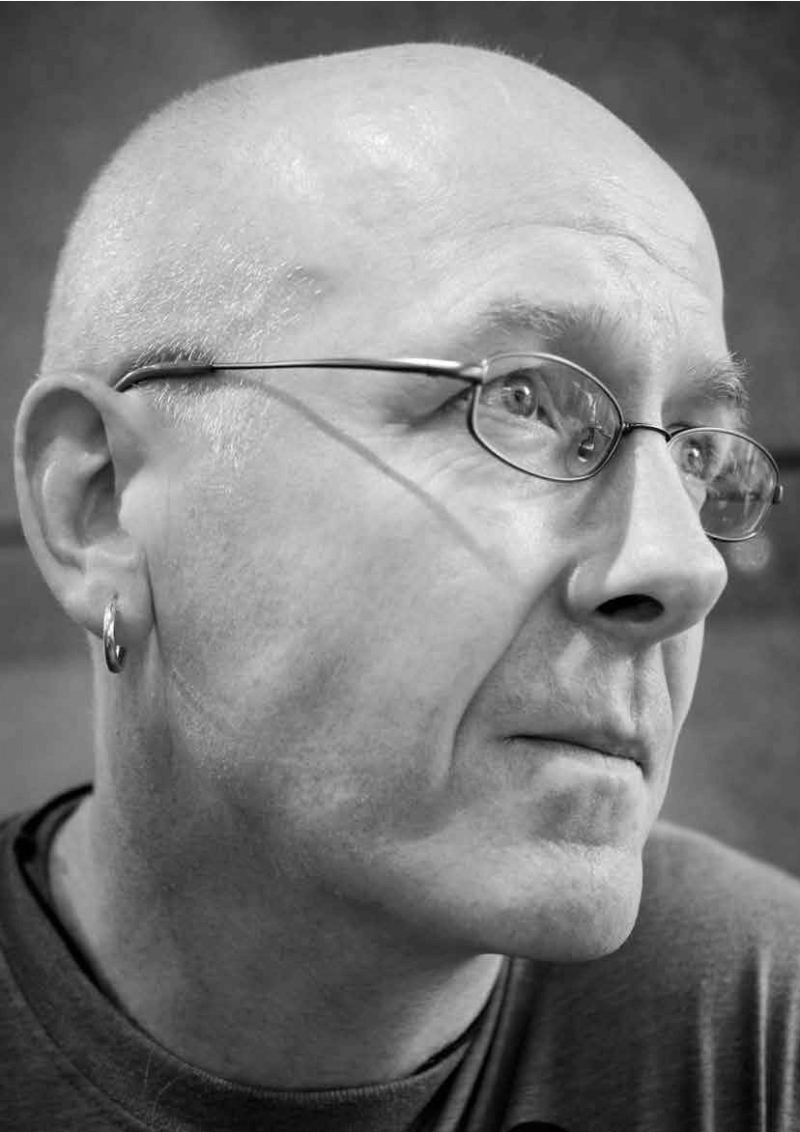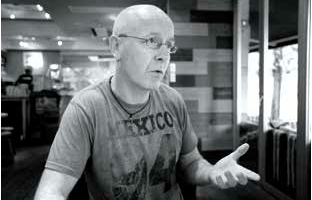Issue:

Dr. David McNeill is a very post modern political journalist. A super stringer for multiple media outlets, he also teaches undergraduates about the politics of the media. McNeill is a professional deconstructor of his own profession. Only he wouldn't call journalism a profession to him it is “a trade.” If it is possible to be a consummate professional at a trade, then McNeill is one.
He traces his interest in journalism to a move from his hometown of Dublin to Clones, on the border with Northern Ireland, when he was 15. “Clones is the kind of place that politicizes you,” he says. It was 1981, the year of the hunger strikes, when 10 republican paramilitary prisoners in Belfast starved themselves to death, making global headlines. McNeill, 48, recalls “the shock of seeing boys my age arguing politics with priests during catechism classes. That was unheard of.”
‘WE ARE SEEING A HISTORIC REALIGNMENT OF THE OLD ORDER, AND NOBODY KNOWS WHAT’S GOING TO COME NEXT.’
The result was a political awakening. “This was around the time that [Margaret] Thatcher came to power, and there was a ‘shoot to kill’ policy. All those things were very important for learning how to question the world around us. That was a big reason why I went into journalism.”
McNeill duly applied to study journalism after leaving school, but failed to get a place because, he says, the college didn’t agree with his political opinions. “I found out because the interview board all ate at my aunt’s restaurant,” he said. “That’s Ireland for you.”
After a brief period training to be a chef (“I got kicked out”), McNeill returned home and worked in a sausage factory. He ran a mobile disco in the evenings with his best friend, who, in 1987, decided to emigrate to the United States, “a very common story in Ireland in the Eighties.” He said, “I had to choose whether or not to stay in this factory and marry a local girl. I said no.”
McNeill won a place as a mature student at the University of Ulster, studying a liberal arts degree. He chose an Asian Studies component and became fascinated by Japan, visiting Tokyo in 1993. “I thought it was a sociological miracle.
McNeill won a place as a mature student at the University of Ulster, studying a liberal arts degree. He chose an Asian Studies component and became fascinated by Japan, visiting Tokyo in 1993. “I thought it was a sociological miracle.You have probably the world’s biggest group of commuters, most of them men, in crowded trains. Put that together on a Friday night with overwork and alcohol… If that were in Ireland they’d kill each other.”
McNeill returned to the UK to complete a PhD, and in 1995 took a job teaching media and politics at Liverpool John Moores University. After five years, frustrated by academic life, he moved to Tokyo and decided to try his hand at journalism.
He got a job copy editing for the Nikkei, his first and last experience on a newspaper staff payroll. “I swear it was like a living death. Going to work on the train every day in total silence, going into an office where no joking was allowed, then doing it all over again in the evening. I gave it up as soon as I could.”
In 2003, McNeill began stringing for the Independent and Irish Times newspapers, and has since added The Chronicle of Higher Education and The Economist to his portfolio, supplemented by scriptwriting for NHK World and university teaching “Sophia in the autumn and Hosei in the spring”.
Then there’s the book, Strong in the Rain, published in 2012, an acclaimed collection of survivor stories from the 2011 triple disaster, co-authored with FCCJ president Lucy Birmingham.

McNeill considers this alarming range of responsibilities a necessary strategy in a freelance market that is “badly paid, and getting worse.” Over time, he has become resigned to the Western appetite for Japanese “color stories.” Fabricated tales of schoolgirl eyeball licking are part of a well-established trend, he says, recalling a 2007 story about “Japanese women buying lambs thinking they were poodles.” (“Ewe’ve been conned,” was the headline in The Sun.)
He points out that the Japanese press is just as guilty, citing an old story in Josei Seven magazine which stated that Princess Masako “was fleeing Japan with her daughter to claim refugee status in Europe, aided by her old professor in Oxford who was sponsoring her under UN legislation against cruel and unusual punishment.” McNeill rang the professor, who had been quoted in the article: “she knew absolutely nothing about it.” When he got hold of the journalist who wrote the article, “he said, ‘Oh, that was a made up story.’ He wasn’t embarrassed about it.”
McNeill, who now has a two year old son, has decided he is working too hard. “Apart from just not being fair on your partner, I resent the time I’m not with my son.” Life in Japan is unlikely to be a permanent arrangement, he says. “But then Japan is full of gaijin who say they’re not going to be here forever.”
To McNeill, journalism is “the greatest job, but one of the worst paid.” He believes “we are seeing a historic realignment of the old order, and nobody knows what’s going to come next. Maybe it will coalesce into something that pays a living wage, but for now it’s really hard to see that happening.”
Despite this pessimism, he is passionate about the intrinsic moral value of political reporting, a lesson learned long ago on the Ulster border. What truly matters, he says, is “a passion for what it means to be a journalist, to get a story out and tell people about something like Fukushima, to believe you can make a difference and change things”
Lucy Alexander is a freelance journalist and correspondent for The Times

